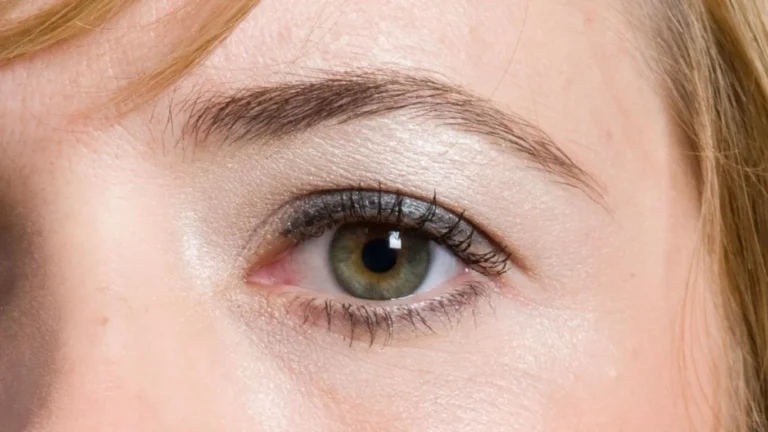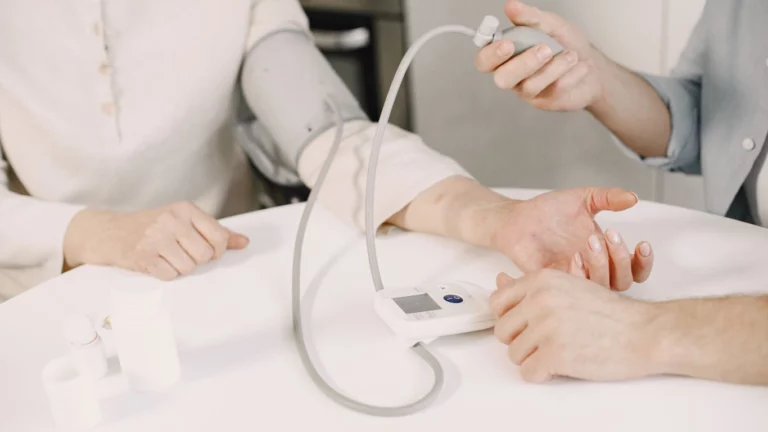Powerful Insights on GERD and Ear Pain Symptoms You Must Know
If you’ve ever felt a strange pressure or pain in your ears during a bad bout of acid reflux, you’re not alone—and you’re definitely not imagining things. As someone who’s worked closely with patients in a busy Gastroenterology clinic, I’ve seen firsthand how sneaky and far-reaching GERD can be. One of the most overlooked connections I hear about constantly is GERD and ear pain symptoms. Yep, that burning sensation creeping up your chest might just be the culprit behind those earaches that show up out of nowhere. Sounds weird, right? But stick with me—there’s a lot more to this story than meets the ear (pun totally intended).
How GERD and Ear Pain Symptoms Are Linked

Most people think of GERD—gastroesophageal reflux disease—as just a bad case of heartburn. And sure, it often starts that way. But over time, acid reflux can do a number on your upper airway, sinuses, and yep—even your ears. So what’s going on here? Well, when acid keeps backing up from your stomach into your esophagus, it doesn’t always stop there. It can irritate the throat, the vocal cords, and the Eustachian tubes (those tiny canals that help drain your middle ear).
Here’s where it gets interesting: when those tubes get inflamed or blocked, pressure builds up—and that’s when you might feel that dull ache, fullness, or even sharp pain in your ears. In my clinic days, I had patients come in thinking they had an ear infection, only to find out the root cause was their reflux flaring up again. Crazy how interconnected the body is, right?
What Exactly Is GERD?
To understand how GERD triggers unexpected symptoms like ear pain, let’s break down what GERD actually is. At its core, GERD is a chronic condition where stomach acid repeatedly flows back into the esophagus. This backwash—called reflux—can irritate the lining of the esophagus and lead to a whole buffet of symptoms, such as:
- Heartburn (that classic chest burn)
- Regurgitation of food or sour liquid
- Chronic cough or sore throat
- Hoarseness or voice changes
- Post-nasal drip or mucus in the throat
- Ear pain or fullness (yes, really!)
When I was assisting in procedures like upper endoscopies, we’d sometimes see signs of long-term irritation not just in the esophagus but also in the throat area. And patients often didn’t connect their ear symptoms to GERD until we started digging deeper during their consultation.
Why GERD Might Be the Hidden Cause of Your Ear Pain

Let’s talk anatomy for a sec. The back of your throat, your Eustachian tubes, and your esophagus are all part of the upper aerodigestive tract. That’s a fancy way of saying your digestive and respiratory systems are neighbors—and not always good ones. When reflux creeps up far enough (a condition sometimes called LPR or “silent reflux”), it can irritate the tissues near the Eustachian tubes. This can lead to:
- Inflammation that causes ear pressure or fullness
- Blockage of drainage pathways from the middle ear
- Secondary infections due to fluid buildup
Honestly, I’ve had patients with no “typical” GERD signs—no heartburn, no sour taste—just persistent ear symptoms. Turns out, their silent reflux was flying under the radar the whole time. I always recommend they keep a reflux symptom journal—it can be super helpful to catch patterns you might not notice otherwise.
Signs Your Ear Pain Could Be GERD-Related
If you’re thinking, “Okay, Camellia, but how do I know if my ear pain is actually coming from reflux?” — here are some red flags to look for:
- Ear pain that comes and goes, especially after meals or lying down
- Feeling of fullness in one or both ears without infection
- Post-nasal drip or frequent throat clearing
- Hoarseness or a lump-in-throat feeling
- Sore throat in the morning
- Frequent burping or bloating
Pro tip from the exam room: If you’ve been treated for ear infections over and over with no real improvement, it’s definitely worth talking to your doctor about the possibility of reflux being the root issue.
GERD and the Surprise Symptoms No One Talks About

Beyond the usual burn and burps, GERD can sneak up on you with symptoms that seem totally unrelated. Here are a few that have come up time and time again in my experience:
- Chronic sinus issues (sinus infections, congestion)
- Dental problems (acid eroding enamel—yikes!)
- Sleep disturbances (waking up choking or coughing)
- Asthma-like symptoms or shortness of breath
It’s wild how many patients get referred to ENT, pulmonology, or even cardiology before the reflux connection is ever considered. One of my favorite parts of being a Medical Assistant was helping patients connect those dots and finally get the right diagnosis—it made all the difference in their quality of life.
Managing GERD and Ear Pain Symptoms: What Actually Helps?

Okay, so now that we’ve laid out the not-so-obvious link between GERD and ear pain symptoms, let’s get into the part everyone wants to know: what can you actually do about it? I’ve seen patients make huge improvements just by tweaking a few habits and getting serious about managing their reflux. And believe me, it doesn’t always require a cabinet full of prescription meds (although for some folks, that’s totally necessary too).
Back in the clinic, one of the most eye-opening moments for patients was realizing how their everyday routines could be sabotaging their progress. Small shifts really can make a difference, especially when it comes to inflammation that affects your ears and throat.
Lifestyle Tips That Make a Difference
These changes might seem basic, but they’re often the first things I’d talk about during patient education sessions—and they genuinely work when you stick with them:
- Elevate your head while sleeping – I’d suggest using a wedge pillow or propping up the head of the bed. Lying flat can let acid creep up overnight and irritate the throat and Eustachian tubes.
- Don’t eat too close to bedtime – Try to stop eating at least 2-3 hours before you hit the pillow. Late-night snacking? A big no-no.
- Identify and avoid trigger foods – For a lot of my patients, that meant saying goodbye to coffee, spicy foods, citrus, and chocolate (I know, it hurts).
- Chew slowly and eat smaller meals – Overeating can put pressure on your stomach and worsen reflux. I always reminded patients: your stomach doesn’t have teeth—do the work up front!
- Stay upright after meals – No slouching or napping right after eating. I used to joke, “Sit up like royalty for an hour or two.”
It’s these little things that can lower acid exposure and reduce that subtle, nagging inflammation that messes with your ears over time. I’ve had patients come back weeks later saying they were shocked how much better their ears felt just by doing these consistently.
When You Might Need Medical Intervention

Let’s be real—sometimes lifestyle changes alone aren’t enough. There were definitely patients I worked with who needed a more aggressive approach, especially when their symptoms started interfering with daily life (or sleep, which is a huge deal!).
When I’d assist with follow-up appointments, here are some medical routes that often came up:
- Proton pump inhibitors (PPIs) – These reduce stomach acid production. They work well, but long-term use should be monitored by your provider.
- H2 blockers – A bit milder than PPIs but still effective for many folks.
- Antacids – For quick, short-term relief, especially if your symptoms are occasional.
- Referral to ENT – This came up a lot when ear pain or throat issues persisted. I’d often coordinate these referrals and explain to patients how ENTs and GI specialists can work together to get to the bottom of it.
Sometimes, more advanced tests were needed too—like 24-hour pH monitoring or esophageal manometry. That sounded intimidating to some, but it helped answer lingering questions when the diagnosis wasn’t clear.
Can GERD Really Cause Long-Term Ear Problems?
I get asked this a lot. The answer? It can, but it’s not super common unless the reflux is poorly controlled. Chronic inflammation from ongoing exposure to acid can lead to:
- Recurrent Eustachian tube dysfunction
- Persistent ear fullness or pressure
- Increased risk of middle ear infections in sensitive individuals
One patient I remember vividly was a teacher who had been struggling with ear pain and hoarseness for over a year. She had been prescribed round after round of antibiotics with no improvement. Once she got a proper GERD diagnosis and started managing her reflux, the ear pain finally started to let up. She told me it felt like “a fog lifting.” That’s how powerful targeted treatment can be.
Other Conditions That Mimic GERD-Related Ear Pain

Now here’s a little twist: not all ear pain connected with reflux is truly caused by it. That’s why I always emphasized to patients the importance of proper diagnosis. A few other things can mimic GERD-related ear issues:
- TMJ dysfunction – If you grind your teeth or have jaw tension, this can absolutely cause ear pain.
- Chronic sinusitis – Sinus pressure and post-nasal drip often tag along with both GERD and allergies.
- Allergic rhinitis – Constant inflammation in the nasal passages can affect Eustachian tube function too.
As much as GERD gets blamed for a laundry list of symptoms, I always reminded patients to keep an open mind—and work with their care team to rule things out methodically. That’s where a collaborative approach really shines.
The Role of Diet in Easing GERD and Ear Symptoms
This is a big one. Over time, I noticed that diet adjustments were often the game-changer. Here’s a breakdown of foods that tend to be GERD-friendly versus those that are common triggers:
GERD-Friendly Options:
- Oatmeal, whole grains
- Lean proteins like chicken or turkey (baked, not fried!)
- Non-citrus fruits (like bananas or melons)
- Cooked veggies like carrots, spinach, and zucchini
- Alkaline snacks like almonds
Foods That Often Make It Worse:
- Tomato-based anything (yes, even that homemade pasta sauce)
- Citrus fruits and juices
- Coffee and carbonated drinks
- Spicy or greasy foods
- Chocolate (this one was always the hardest for people to give up!)
I used to encourage patients to try an elimination diet for a couple of weeks, then slowly reintroduce foods to identify specific triggers. It’s not glamorous, but it’s super insightful. The ear pain sometimes faded just from cutting out a few key culprits.
When to See a Doctor About GERD and Ear Pain Symptoms

Alright, let’s get real for a moment. While many people can manage GERD and ear pain symptoms with lifestyle tweaks and over-the-counter remedies, sometimes it’s just not enough. From my time in the Gastroenterology clinic, one thing was clear: if symptoms are persistent, worsening, or seriously impacting your quality of life, it’s time to get professional help.
Here are a few signs you should definitely not ignore and see your healthcare provider about:
- Severe or constant ear pain that doesn’t respond to typical treatments
- Difficulty swallowing or feeling like food is stuck in your throat
- Persistent hoarseness or voice changes lasting more than a few weeks
- Frequent choking or coughing episodes, especially at night
- Unexplained weight loss or appetite changes
In my experience, patients often hesitate to bring up ear pain when discussing reflux, thinking it’s unrelated or “not important.” But trust me, your healthcare team wants to hear about everything—even the little weird symptoms. Those details can really help paint the full picture and guide the best treatment plan.
What to Expect During Your Medical Visit
When you do see your doctor, expect a thorough conversation about your symptoms and history. They might ask about your eating habits, sleep patterns, and even stress levels—because reflux is often linked to lifestyle and emotional health too.
Here’s what a typical workup might involve:
- Physical exam, focusing on your throat, ears, and neck
- Endoscopy to check for esophageal irritation or damage
- pH monitoring tests to measure acid levels in the esophagus
- Referral to ENT or audiology if ear symptoms need specialized evaluation
Back when I was assisting with these procedures, I noticed that patients who understood the process ahead of time felt way less anxious and more in control. So don’t hesitate to ask your doctor any questions—they want you to feel comfortable and informed.
Long-Term Strategies for Managing GERD and Protecting Your Ears

Managing GERD is often a marathon, not a sprint. I saw many patients improve quickly with treatment but then relapse when they relaxed their habits. The key is consistency and a holistic approach that looks beyond just acid suppression.
Here are some long-term strategies that I found make a big difference:
- Maintain a GERD-friendly diet — Think of this as a lifestyle rather than a temporary fix.
- Manage stress — Stress can worsen reflux symptoms, so practices like yoga, meditation, or even regular walks can help.
- Stay hydrated — Water helps dilute stomach acid and keeps mucus membranes healthy.
- Quit smoking and limit alcohol intake — Both irritate the esophagus and increase reflux risk.
- Regular follow-ups with your gastroenterologist to adjust treatment as needed
One patient I worked with struggled with recurring ear fullness despite treatment. When she started focusing on stress reduction alongside diet and medication, the ear symptoms almost vanished. It was a game changer—and proof that GERD management is really about treating the whole person.
My Final Takeaway from Working in Gastroenterology
GERD is more than just heartburn—it’s a complex condition that can pop up in surprising ways, like with ear pain. The connection isn’t always obvious, but understanding it can make a world of difference. If you’re dealing with ear discomfort alongside reflux, don’t brush it off or assume it’s unrelated.
Get checked out, stay curious about your symptoms, and be proactive with lifestyle changes. With the right approach, you can find relief and keep your ears happy too.
References
Disclaimer
This article is intended for informational purposes only and does not replace professional medical advice, diagnosis, or treatment. Always consult your healthcare provider with any questions you may have regarding a medical condition. If you have or suspect you have GERD or ear pain symptoms, please seek the advice of a qualified medical professional.

Camellia Wulansari is a dedicated Medical Assistant at a local clinic and a passionate health writer at Healthusias.com. With years of hands-on experience in patient care and a deep interest in preventive medicine, she bridges the gap between clinical knowledge and accessible health information. Camellia specializes in writing about digestive health, chronic conditions like GERD and hypertension, respiratory issues, and autoimmune diseases, aiming to empower readers with practical, easy-to-understand insights. When she’s not assisting patients or writing, you’ll find her enjoying quiet mornings with coffee and a medical journal in hand—or jamming to her favorite metal band, Lamb of God.







